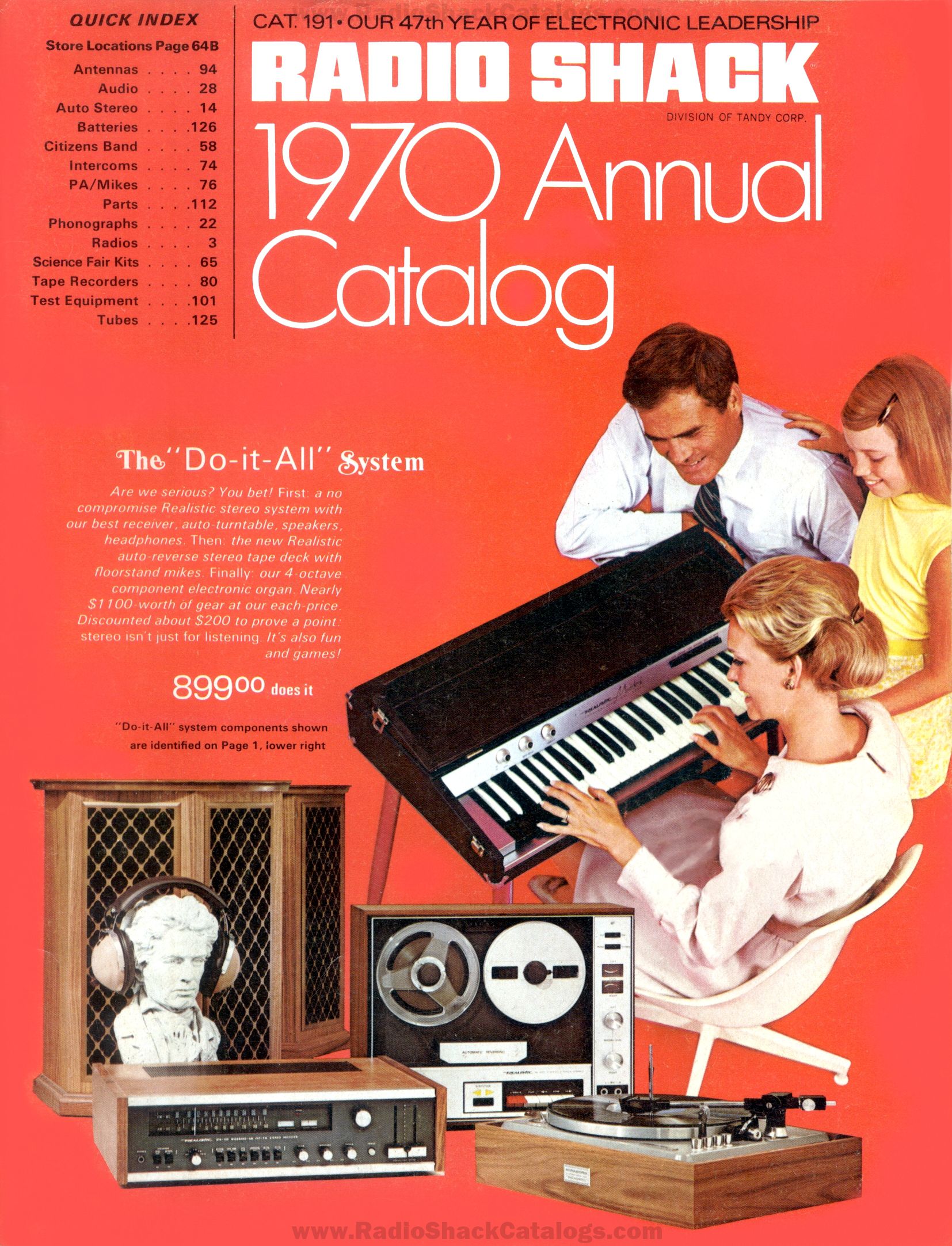
“I bet RadioShack was great once,” writes former employee Jon Bois in a much-circulated 2014 piece for SB Nation. “I can’t look through their decades-old catalogs and come away with any other impression. They sold giant walnut-wood speakers I’d kill to have today. They sold computers back when people were trying to understand what they were. When I was a little kid, going to RadioShack was better than going to the toy store. It was the toy store for tall people.” Yet by the mid-twenty-tens, it had become a “panicked and half-dead retail empire”; in 2015, it finally filed for bankruptcy.
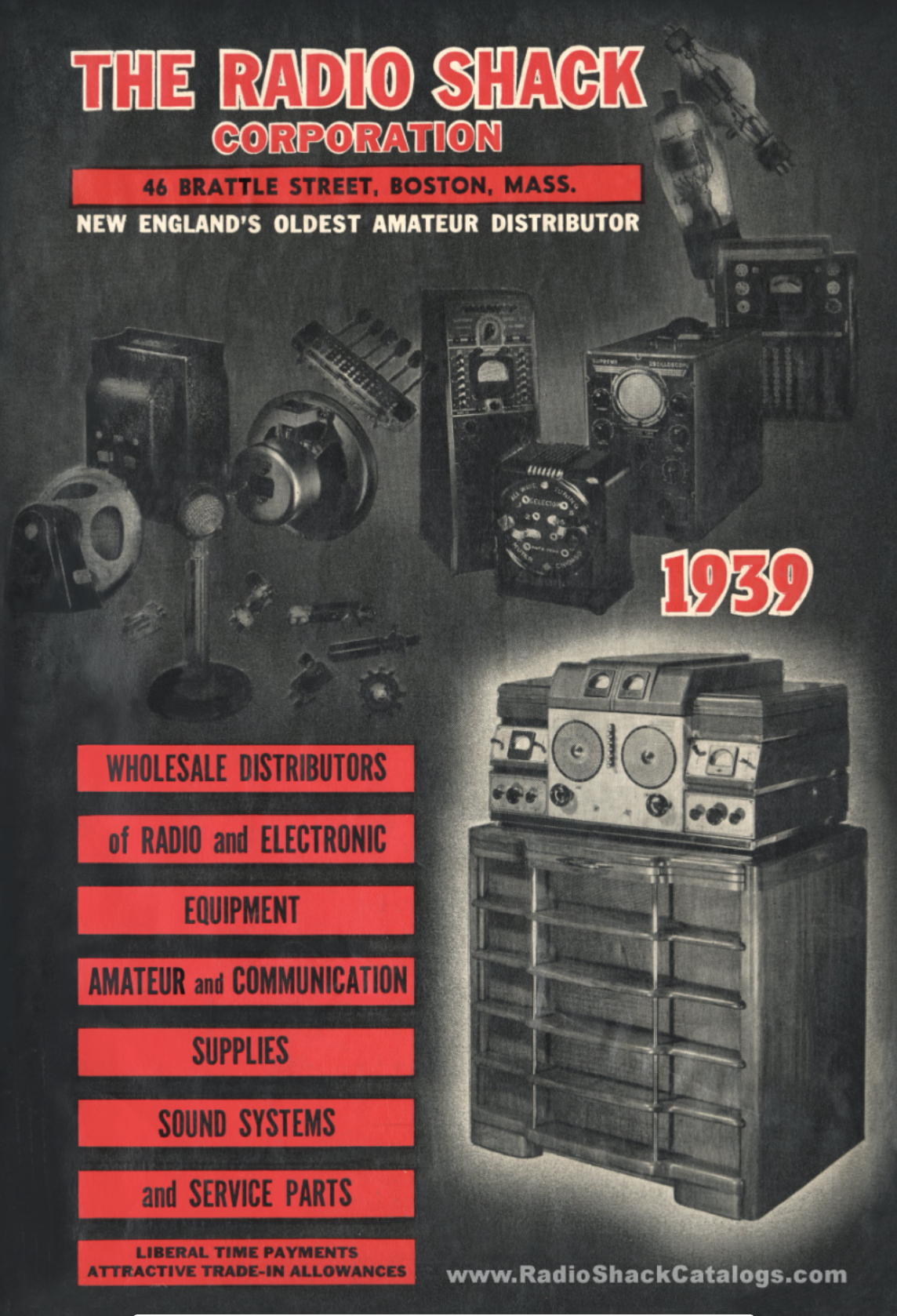
Still, all those catalogs live on, free to browse in the digital archive at Radioshackcatalogs.com. The first volume dates from 1939, by which time Radio Shack (as its name was originally written) had already been in business for seventeen years. “This catalog is intended to serve as a comprehensive and accurate listing of what we believe to be the essential and unusual requirements of the radio amateur, the serviceman, laboratories, industries, and schools,” declares its opening letter to the customer. “To boast of our service in any respect would be so much useless verbiage, service having been the feature of our growth.”
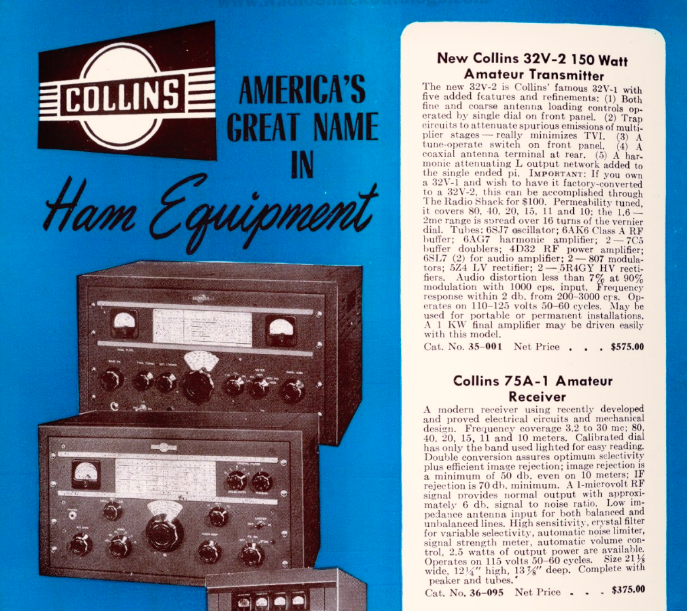
Neither service nor growth remained features of the company by the time Bois was working there. But it had been a pretty glorious run: to behold the first 50 years of RadioShack catalogs is to behold nothing less than the evolution of American consumer electronics. At first directed toward those with serious technical know-how, the company’s offerings expanded over the decades to appeal to hobbyists, then to ordinary people looking to introduce a bit of electronic — and later, digital — enrichment into their professional and personal lives.
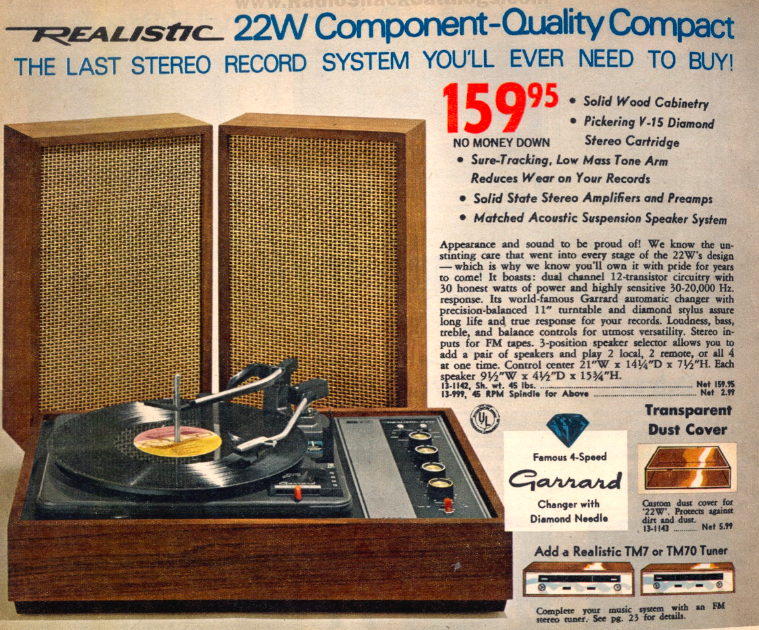
Some Americans found their way to RadioShack by building crystal radios and science-fair projects in childhood; others began frequenting its stores while building their first real hi-fi system, component by component; others still got into personal computing through the store-brand TRS-80 (or “Trash 80,” as more serious computer nerds called it). My own grandfather was such a habitué that, when he died early in the nineties, our house suddenly filled up with inherited RadioShack-only products, from Realistic radios to Tandy computers. (I remember spending many happy hours with the Model 100, a primitive laptop grandly marketed as a “Micro Executive Work Station.”)
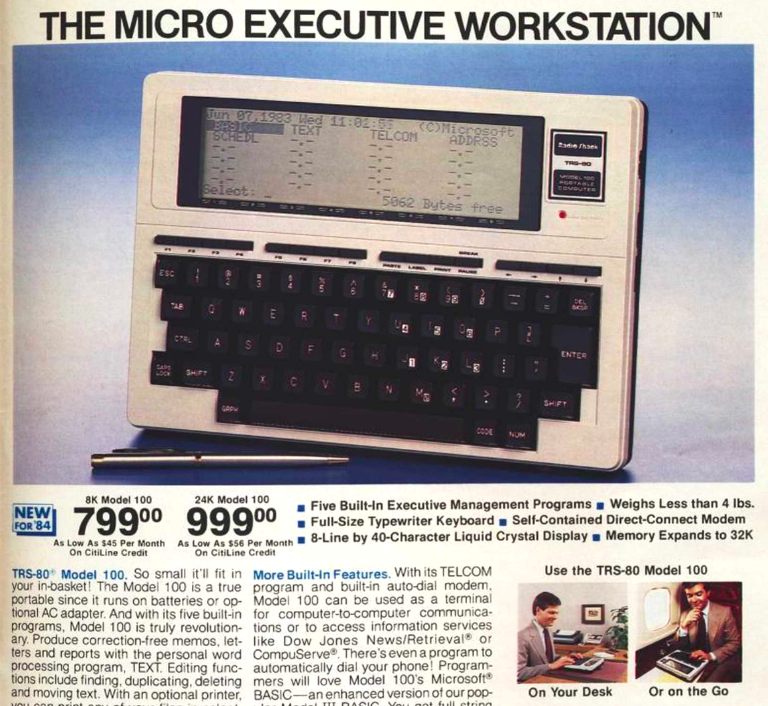
“This is a consumer technology business that is built to work perfectly in the year 1975,” writes Bois. And indeed, the 1975 RadioShack catalog offers page after wondrous page of remote-controlled stereos (“the ultimate in luxury”) and “action radios”; fiber-optic decorative lighting fixtures, eight-track car tape decks; calculators promising a “pocketful of miracles”; and built-it-yourself intercoms, pocket lie detectors, and “color organs.” Alas, like so many commercial enterprises that rode high in the mid-twentieth-century, RadioShack failed to take advantage of the internet, and was ultimately crushed by it — an ironic fate indeed for what had so long been the one-stop technology shop. Enter the archive of RadioShack catalogs here.
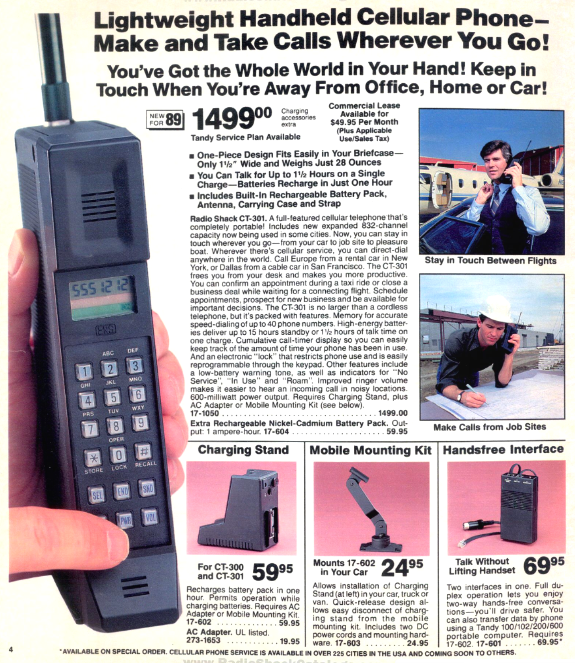
via MetaFilter
Related content:
Watch “Hi-Fi-Fo-Fum,” a Short Satirical Film About the Invention of the Audiophile (1959)
Nirvana Plays in a Radio Shack, the Day After Recording its First Demo Tape (1988)
The First Cellphone: Discover Motorola’s DynaTAC 8000X, a 2‑Pound Brick Priced at $3,995 (1984)
One Man’s Quest to Build the Best Stereo System in the World
Based in Seoul, Colin Marshall writes and broadcasts on cities, language, and culture. His projects include the Substack newsletter Books on Cities and the book The Stateless City: a Walk through 21st-Century Los Angeles. Follow him on Twitter at @colinmarshall or on Facebook.


The
link to the catalogs is just to Temu when using an iPhone